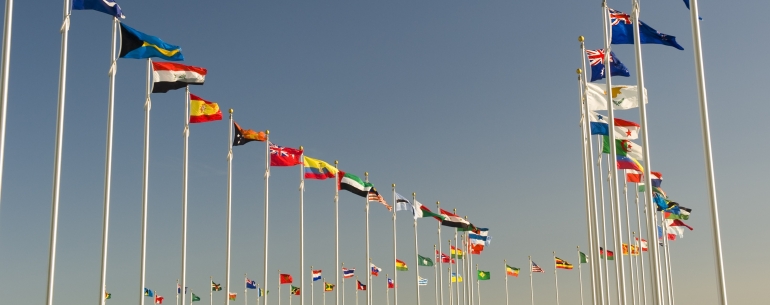Tue 08 September 2020
By Jayne He
The COVID-19 pandemic is changing the world in an unexpected way. The economic downturn accompanies with the pandemic also poses a question mark on how the international economy will be like in the post-COVID-19 world.
On 22 July 2020, the Co-Director of UNSW Law’s Herbert Smith Freehills China International Business and Economic Law (CIBEL) Centre Professor Heng Wang spoke on “The Future of International Economic Order in the Post-COVID-19 World” at a virtual workshop on “Setting a Research Agenda for International Economic Law” hosted by the Centre for International Law at the National University of Singapore.
In his presentation, Professor Wang discussed the future of international economic order in the post-COVID-19 World from a Chinese perspective. He demonstrated his view by looking at three main areas. First is China's approach to international economic order. As argued in his recent research “Selective Reshaping: China’s Paradigm Shift in International Economic Governance”, Professor Wang suggested that China is adopting “selective reshaping” and “selective engagement” approaches with the international economic order. Such approaches could be demonstrated in the Belt and Road Initiative and the US-China Phase One Trade Agreement.
He further talked about the new technology and international economic order, particularly through the perspective of the central bank digital currency (CBDC), which would profoundly affect international economic order in the future world. COVID-19 outbreak and Libra speed up the progress in CBDC in states like China. CBDC markedly differs from paper currency in crucial aspects like data and privacy. CBDC will also reshape the role of central banks.
Lastly, Professor Wang shared his outlook for the future of the international economic law. He noted that the current rule-based order is facing serious challenges, ranging from the WTO Appellate Body crisis to the unilateral measures. More efforts are needed to develop new rules that address fundamental issues in international economic law like equity, and ensure impartial enforcement. It remains to be seen whether there is political willingness to do so.
This workshop is one of the six workshops hosted by Centre for International Law at the National University of Singapore. This workshop series aims to develop a research agenda for the next decade in international economic law through discussions with experts all around the globe.
More of Professor Wang’s research may be found at ResearchGate, SSRN, Twitter @HengWANG_law, and LinkedIn.
